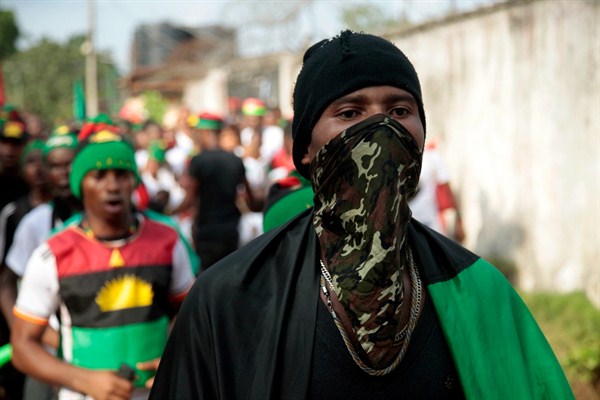With the arrest of 60 supporters of the Biafra separatist movement this week, Nigeria has taken a step closer to provoking a violent insurgency in the southeastern region of the country. As tensions rise, both the government and the separatists are threatening to push Nigeria further into conflict. In an email interview, Ryan Cummings, director of Signal Risk, an Africa-focused risk management consultancy, examines what is driving the Biafra separatist movement, the evolution in the government’s response and the risks if the conflict escalates.
WPR: What is behind the surge in pro-Biafra activism, and what do these activists hope to achieve?
Ryan Cummings: Separatist agitation by Biafran activists has been an ongoing issue since the end of the Nigerian civil war in 1970; the war itself was prompted by the declaration of the Igbo Republic of Biafra in 1967. Members of Nigeria’s Igbo community, who principally reside in the country’s southeast, have long claimed to be socially, politically and economically marginalized by the Nigerian state. These sentiments became more acute after the victory of the All Progressives Congress, or APC, in Nigeria’s 2015 general elections, which resulted in a leader from the northern Hausa people, Muhammadu Buhari, assuming the presidency. Buhari proclaimed that those who voted against him could not expect the same treatment as those who supported him. This further heightened anti-government sentiment in southeastern Nigeria—a region generally considered to be a stronghold of the opposition People’s Democratic Party, which lost the presidency in 2015 but still governs in several states.

